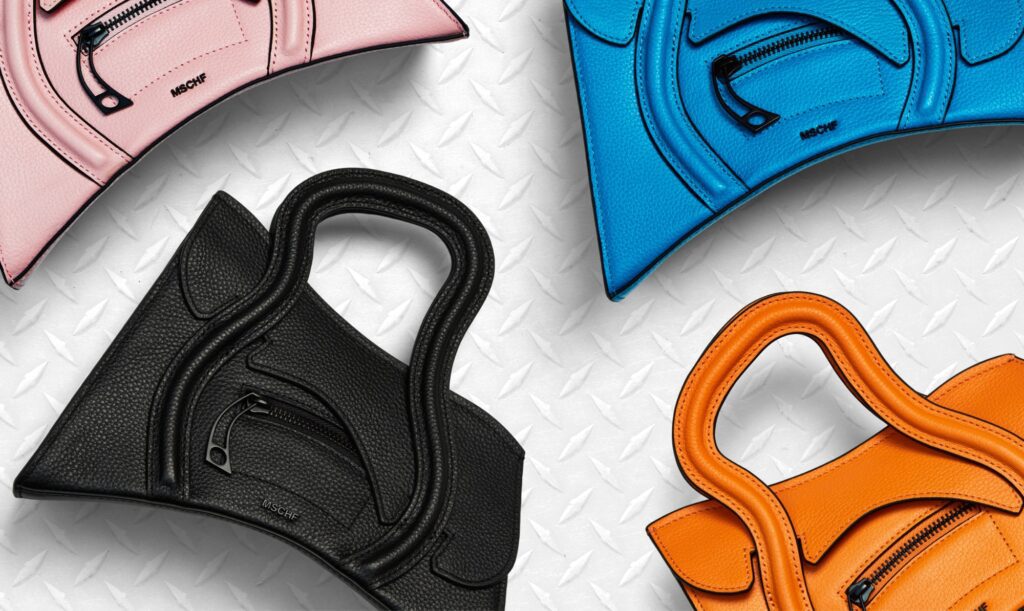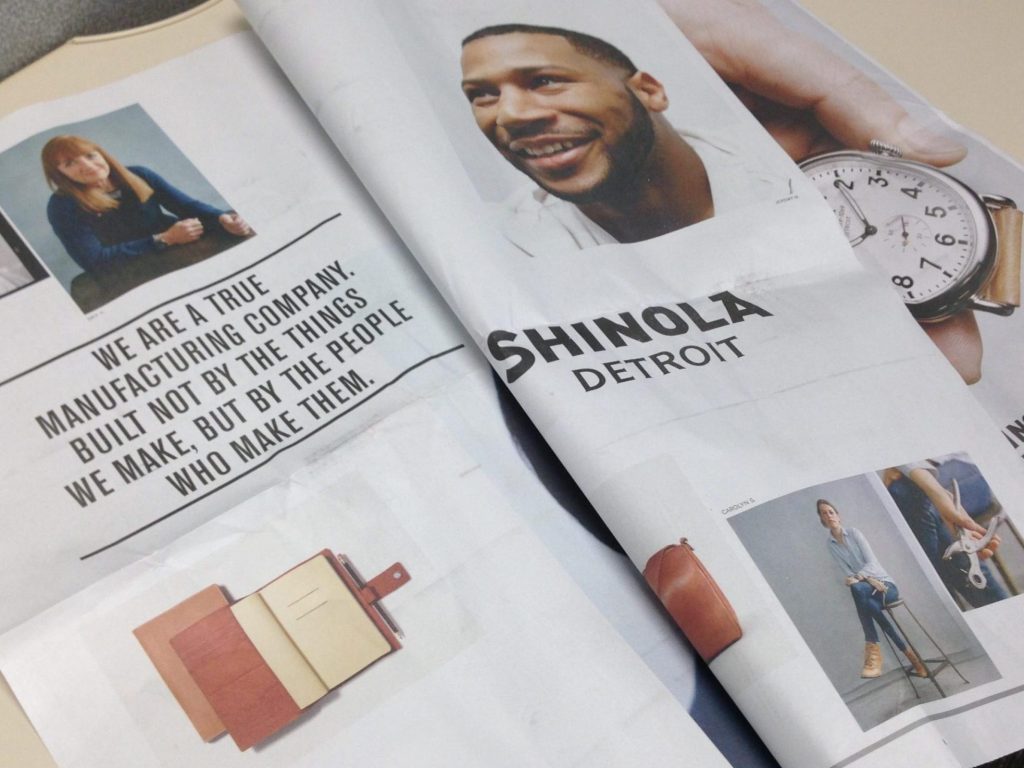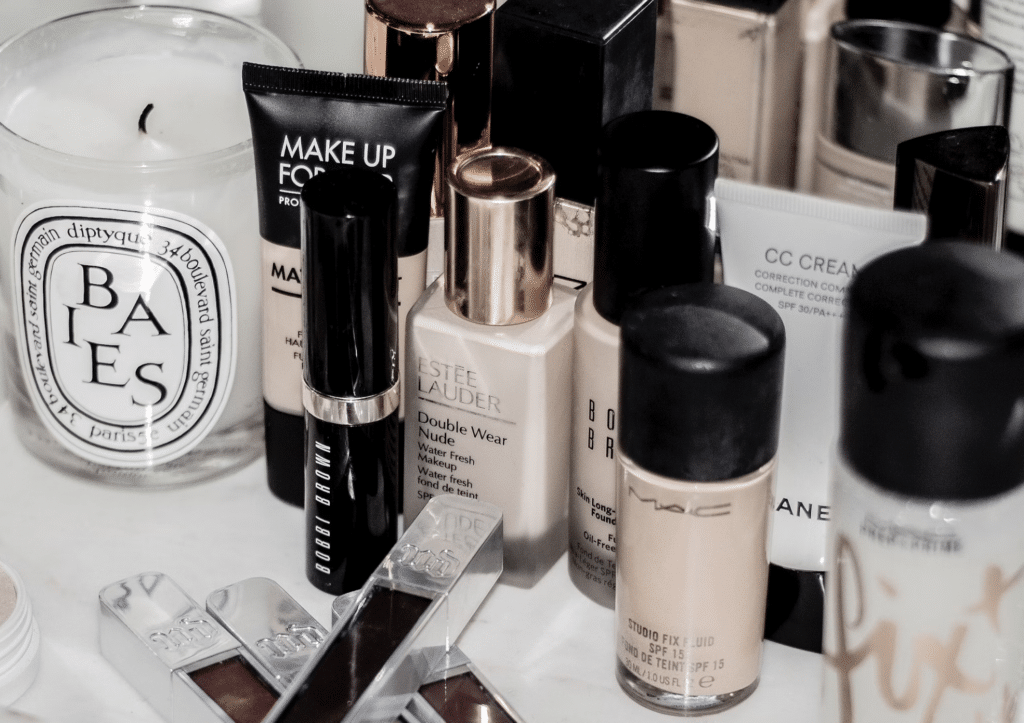Since its founding in 2016, MSCHF has consistently garnered attention thanks to its often-headline-making drops, ones that see the Brooklyn, New York-based collective roll out everything from deconstructed Damien Hirst prints and the now-infamous “Satan Shoes” to digital-only offerings every two weeks. All the while, the company – which has been described as a “VC-backed art collective,” a nod to the $11 million-plus it has raised from the likes of Founders Fund and Caanan Partners – has caught the eye of brands and their legal departments in furtherance of its operations, many of which seem to specifically court legal pushback or at the very least, walk a very fine line between infringement (or some other cause of action) and fair use.
The formerly under-wraps startup – which is the brainchild of founder and CEO Gabriel Whaley and is responsible for creating “some of the most absurd, cynical, and viral projects and products that have spread across the internet,” as Business Insider previously put it – crept into the mainstream media thanks to its Satan sneakers, the limited-edition shoes that it introduced in the spring of 2021 and that swiftly landed the company on the receiving end of both religious-focused fury on social media (and beyond) and a trademark-centric lawsuit courtesy of Nike.
However, by the time the controversial sneakers hit the market in March 2021, MSCHF had been trotting out interesting and legally provocative products, a pattern that seems to have increasingly focused its attention on the fashion/luxury and footwear segments of the market. With an array of intriguing (and legally questionable) projects under its belt and no apparent intent to stop “poking fun at everything and anything,” as MSCHF has put it, we take a (running) look at some of MSCHF’s most provocative fashion/footwear-centric efforts – from the Satan sneakers, of course, to more recently drops like its micro “Louis Vuitton” bag to its lawsuit-inducing Wavy Baby sneakers …
February 2024 – Global Supply Chain Telephone Bag
In one of its latest projects, which is laser-focused on luxury, MSCHF unveiled its Global Supply Chain Telephone bag. The leather handbag, which was created with the help of four leather factories in Peru, Portugal, India, and China, respectively. In furtherance of the project, MSCHF says that it first asked a factory in Peru to knockoff an Hermès Birkin bag; it then told a factory in Portugal to “mash up” the knockoff Birkin design with a Celine Luggage tote. Next step: MSCHF got a factory in Peru to combine the franken-Birkin/Luggage Tote bag with the design of the Dior Saddle bag. And finally, a factory in China was tasked with taking that design and “merging” it with a Balenciaga Hourglass bag. The result is the Global Supply Chain Telephone bag.

A showcase of the “hidden creative labor from four factories,” the $650 bag – which was released on February 21 – is a demonstration of the fact that leather goods-producing factories are “not a computer, taking in perfect instructions and outputting perfect execution.” Instead, MSCHF claims that “the factory performs tremendous amounts of invisible creative labor. It is found in processes, mechanisms, or techniques that succeed when they cannot be spotted by the end consumer. It is creativity only evident, for example, in the way you cannot see a parting line. It happens in places where the designer doesn’t even know to provide instructions.”
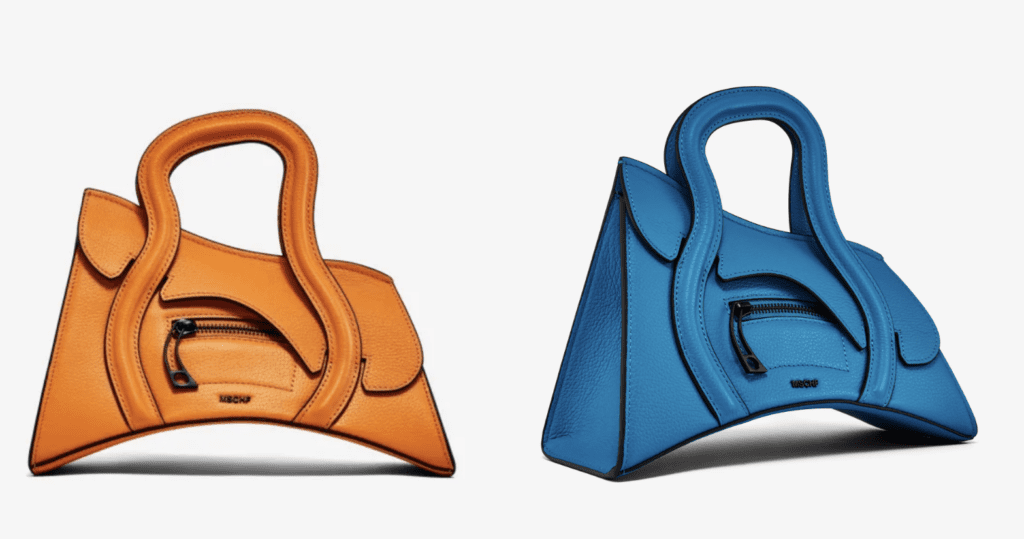
Reflecting on the potential to ruffle notoriously-protective luxury brands’ feathers with the bag, MSCHF in-house counsel John Belcaster told the New York Times, “As an object, it is a comment on a process. And if construed also as a comment on other objects, Goldsmith v. Warhol provides space, as our bag is a complementary work, not a substitute.”
June 2023 – The Microscopic Handbag
Barely visible to the human eye, MSCHF’s “Microscopic Handbag” appeared to take aim at the micro handbag trend (which the group said have become so small that they are not “dysfunctional, inconveniences to their ‘wearer’”) and luxury titan Louis Vuitton in a single swoop. Mirroring the design of Louis Vuitton’s OnTheGo tote but measuring at a mere 657 x 222 x 700 microns (or less than 0.03 inches wide), the lime green “Microscopic Handbag” was crafted from photopolymer resin using 2-photon polymerization printing methods and was touted by MSCHF – and auction platform Joopiter, where it ultimately sold for $63,750 in June – as “viewable through a microscope.”
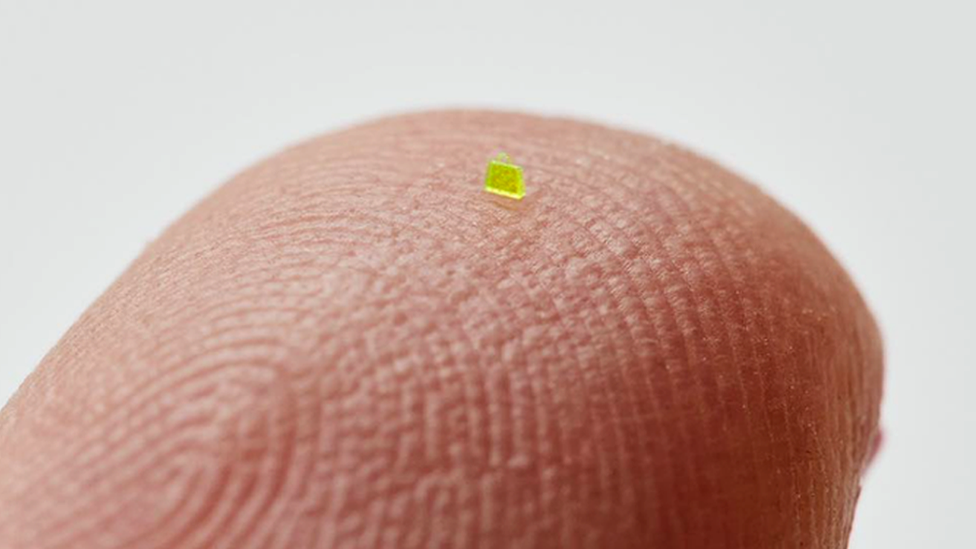
True to form, MSCHF’s chief creative officer Kevin Wiesner confirmed that MSCHF had not sought (nor did it likely need) Louis Vuitton’s authorization in order to make use of the brand’s Toile monogram for the one-off “handbag” design.
May 2023 – “Gucci” Juice
MSCHF appears to be looking to the luxury segment (yet again) for what could be an impending project. Just before it dropped the microscopic Louis Vuitton monogram-bearing “bag” at an online auction in June 2023, MSCHF quietly filed a trademark application for registration. According to the application that its counsel lodged with the U.S. Patent and Trademark Office in May, MSCHF is looking to nab a registration for the GUCCI word mark for use on … fruit juice (Class 32).

Unsurprisingly, the USPTO issued some preliminary pushback. In an Office action in December 11, 2023, an examining attorney refused the application on a “false connection” basis, stating that the applied-for mark “consists of or includes matter that may falsely suggest a connection with Gucci Gucci S.p.A.” Although Gucci Gucci S.p.A. is “not connected with the goods and/or services provided by applicant under the applied-for mark, Gucci Gucci S.p.A. is so well-known that consumers would presume a connection,” the examiner asserted.
MSCHF has not (yet) lodged a response to the Officer action.
April 2022 – Wavy Baby Sneakers
In what proved to a lawsuit-inducing drop, MSCHF released its Wavy Baby sneakers in April 2022 in collaboration with rapper Tyga. The group characterized the warped sneaker as its attempt to “transform the once iconic [Vans Old Skool] shoe into the modern, wobbly, and unbalanced realities.” Shortly after MSCHF began teasing the sneaker (but ahead of its slated release on April 18, 2022), Vans and its parent company VF Corp. lodged a trademark-centric case against it in the U.S. District Court for the Eastern District of New York, alleging that “in spite of, or perhaps due to, [its] knowledge of Vans’ rights and the substantial value of the Vans trademarks and trade dress, MSCHF recently embarked on a campaign to piggy-back on Vans’ rights and the goodwill it has developed in its iconic shoes” by offering up a shoe of its own that “blatantly and unmistakably incorporates Vans’ iconic trademarks and trade dress.”
In its complaint in the still-ongoing case, Vans argued that by way of the Wavy Baby sneaker, MSCHF has willfully infringed its trademark and trade dress rights in the 40-year-old OLD SKOOL shoe, including the Side Stripe trademark. “The combination of elements comprising the OLD SKOOL Trade Dress is distinctive, and the public recognizes and understands that the OLD SKOOL Trade Dress distinguishes and identifies genuine Vans brand shoes,” the footwear brand asserts.

Against that background, Vans alleges that MSCHF sought to “free-ride off Vans’ reputation and popularity” by co-opting “the shape and location of the [Vans] side stripe trademark, in addition to copying [its] iconic black shoe with white side stripe mark, on the shoe upper.” Beyond that, the allegedly infringing Wavy Baby shoe “deliberately incorporates another iconic feature of the Vans OLD SKOOL shoe: the square, red and white heel logo on the back of the shoe,” per Vans, while also co-opting “Vans’ trademark Waffle Sole, as well as the Vans footbed logo.” Finally, MSCHF also has “copied Vans’ trademarks and trade dress in connection with advertising and product packaging for the Wavy Baby shoe,” namely, by way of the lookalike shoe box.
From the outset, MSCHF has argued that it should be shielded from Vans’ claims on the basis that its Wavy Bay sneakers “are not mere consumer goods,” but instead, are part of a larger “series of expressive works using shoes as a medium for its art.”
For the latest on the Vans v. MSCHF case, you can find that right here.
March 2021 – Satan Sneakers
In March 2021, MSCHF dropped 666 pairs of its now-infamous Satan shoes, which it crafted by taking formerly authentic Nike Air Max 97s sneakers that it purchased from an authorized Nike retailer and then customized by filling the soles of them 66cc of red ink and one drop of human blood, affixing a pentacle charm to the laces, and adorning the side with “Luke 10:18.”
Within hours of MSCHF releasing the sneakers for pre-sale via its app, Nike filed a trademark infringement and dilution, false designation of origin, and unfair competition lawsuit in the U.S. District Court for the Eastern District of New York, alleging that MSCHF “is currently taking orders for shoes it refers to as Satan Shoes, which are customized Nike Air Max 97 shoes that MSCHF has materially altered to prominently feature a satanic theme,” and which it is doing “without Nike’s approval or authorization.”
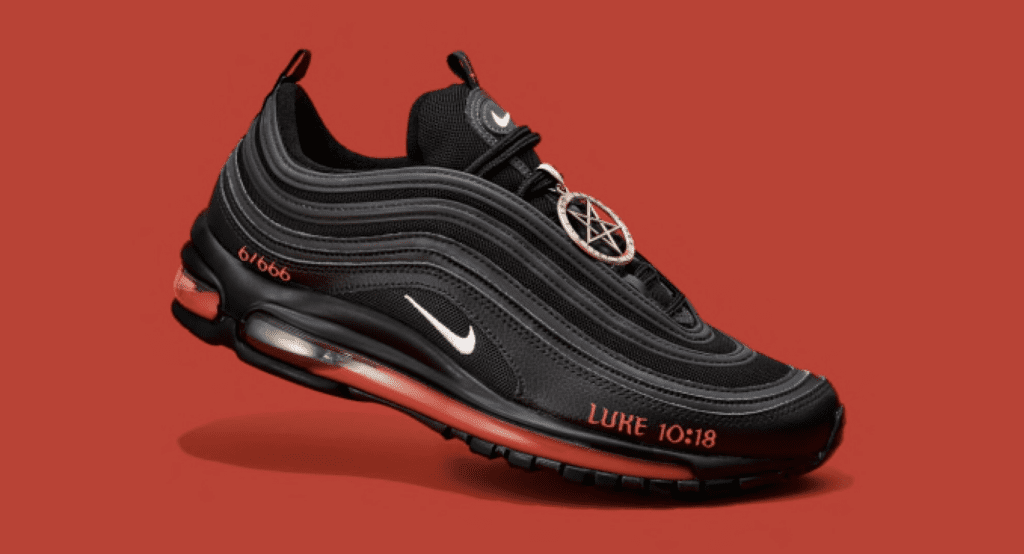
Within two weeks of Nike filing suit, the two parties settled their differences. The settlement came just days after a New York federal court determined that “Nike has shown a likelihood of success on at least some of its claims,” stating that Nike specifically showed that “MSCHF’s actions are likely to confuse, and likely are confusing, consumers about the origin, sponsorship, or approval of MSCHF’s goods,” and are “likely to dilute and tarnish Nike’s marks.” As a result, the court issued a temporary restraining order barring MSCHF from fulfilling any orders for the Satan Shoes and from using the Nike’s name or Swoosh marks on any confusingly similar products or in any advertising.
February 2021 – The Birkinstocks
Drop number 39 for MSCHF: The Birkinstock sandals, which consist of a mashup of two iconic products: Hermès’ once-mythical Birkin bag and Birkenstock’s cult sandals. Crafted from more than $122,500 worth of genuine Birkin bags and textiles from authentic Birkenstock sandals, MSCHF said the limited run of 10 pairs sandals are “the most exclusive sandals ever made.” The sandals ranged in price from $34,000 to $76,000.
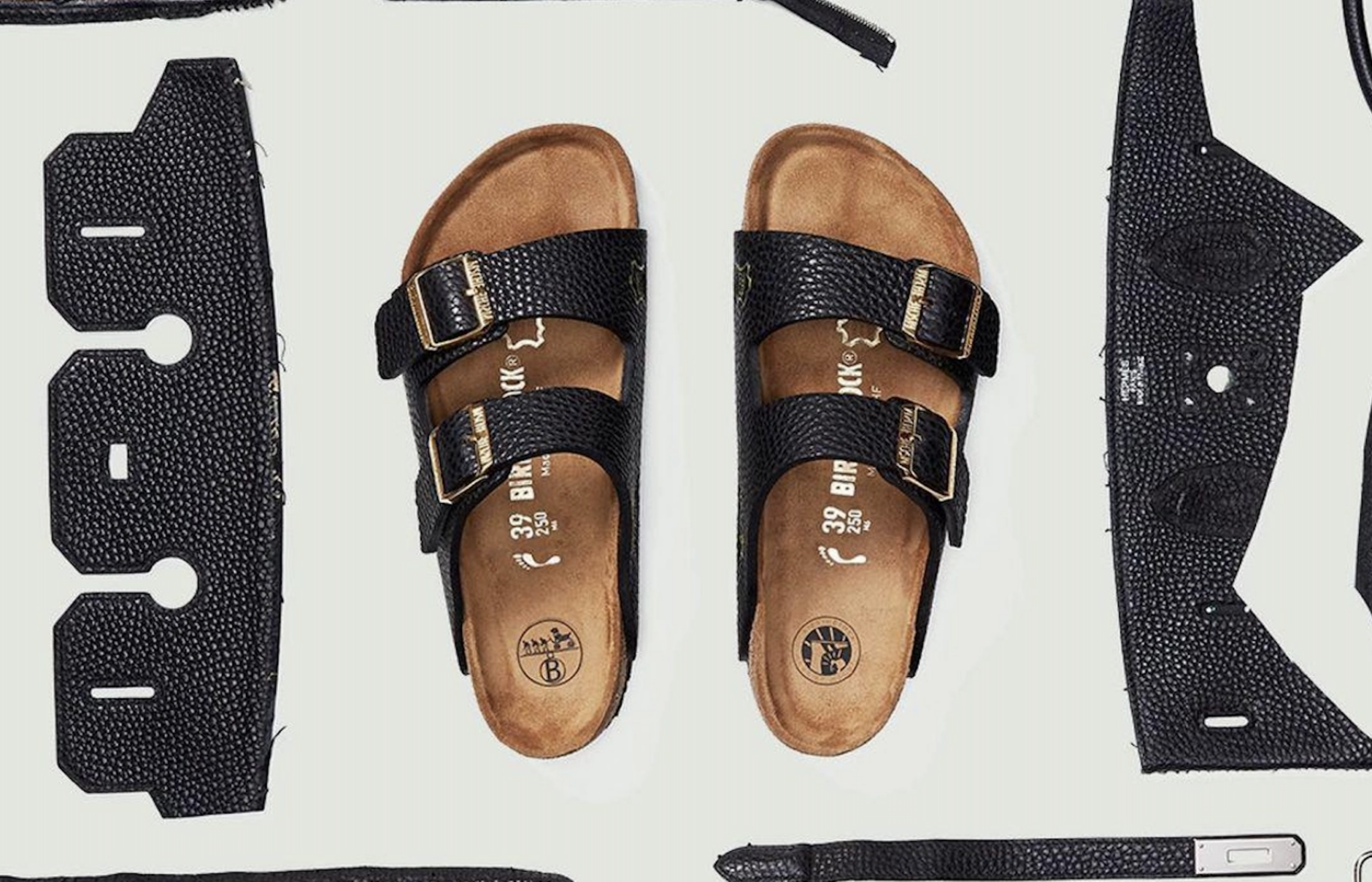
As for whether Hermès and/or Birkenstock was involved in – or were consulted on – the lookalike, sound-alike footwear, the answer is (unsurprisingly) no. At the time of release, a representative for MSCHF told TFL that the company was concerned about legal ramifications from either Hermès or Birkenstock but did “hope” that both brands saw the product.
July 2020 – MSCHF X
For its twenty-fifth drop, MSCHF took aim at the enduring practice of branded collabs by creating what it called “the most impossible collab.” The result was 1,000 patchwork t-shirts that combined materials of its own with those from 9 of the most hyped streetwear/activewear brands: Palace, Kith, adidas, Off-White, Chinatown Market, Stussy, Supreme, Bape, and North Face. The original price tag: $1,010.10, a nod to the combination of the ten brands. The t-shirts were marketed alongside a note from MSCHF stating, “No shit we didn’t ask for their permission,” in reference to the nine other brands.
April 2020 – Severed Spots
For its twentieth drop, MSCHF took one a print of one of Damien Hirst’s famed spot paintings, L-Isoleucine T-Butyl Ester,” cut out each of the colorful spots – 88 in total – and sold them individually for $480 apiece, while offering up the spotless print after the fact by way of an auction. (It sold for $261,400.) The purpose of the project, according to MSCHF? To protest the treatment of artworks as “the archetypal value sink” and the act of investors pooling together to buy art, which they then store and ultimately, “flip [to another buyer or group of buyers] like a giant bill in a colorful currency arbitrage.”
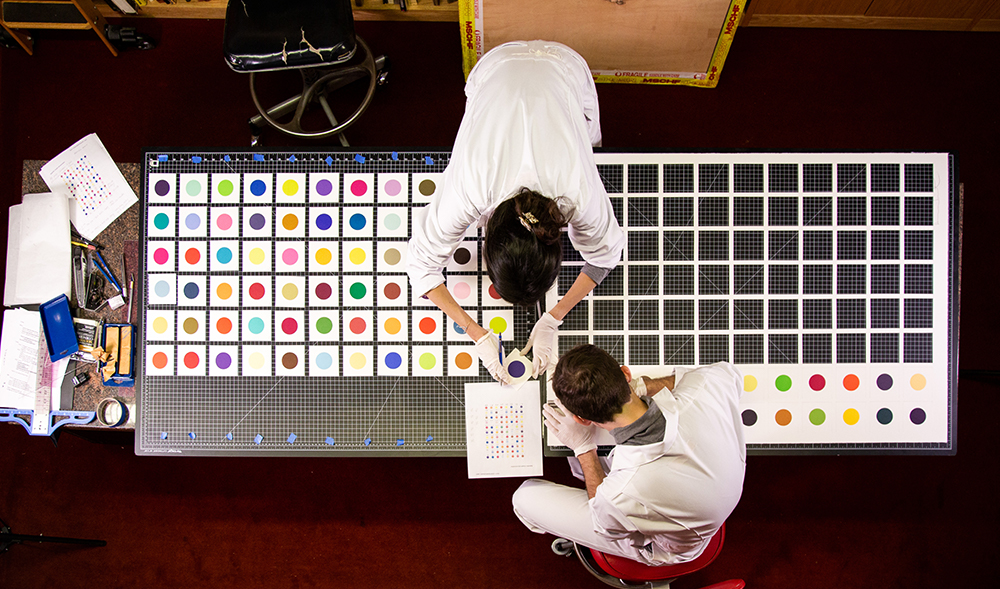
As TFL reported at the time, in chopping up what the group valued as a $30,000 print, “so everyone can get a Spot,” MSCHF was not necessarily operating within the bounds of the law – a relatively obscure copyright law called the Visual Artists Rights Act of 1990 (“VARA”), which provides certain artists, such as those behind single or limited edition paintings, drawings, prints, photographs, or sculptures, with the right to sue of their “moral rights” in a work are violated. It is worth noting that VARA defines “limited edition” as 200 or less, and so, any cause of action would depend on the number of prints of the specific spot painting that were released.
October 2019 – Jesus Shoes
In a drop that would come to be contested in the Nike Satan shoes-centric lawsuit, MSCHF released its “Jesus Shoes” in October 2019. The Nike Air Max 97 sneakers were customized to include 60cc of water that was originally sourced from the River Jordan and then blessed injected into the heel, a crucifix adorned on the laces, “INRI” (which means Iesus Nazaraeus Rex Iudaeorum – or “Jesus the Nazarene, King of the Jews”) embroidered on the heel tab, and “MT. 14:25” stamped on the midsole in a nod to the Bible passage in which Jesus walks on water. The sneakers sold out within a minute on October 8, and while they were originally priced at $1,425, prices on resale sites rose to $2,500 shortly thereafter and as high as $5,000 after that.







